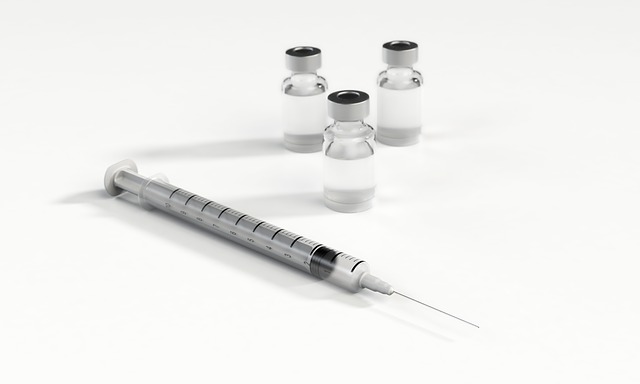Getting Your Shingles Vaccine

Shingles is a viral infection that results in a painful rash on the body or face. The rash typically appears on one side of the torso but can occur in other places on the body. The virus that causes chickenpox, the varicella-zoster virus, is the same virus that causes shingles. This means if you have ever had chickenpox, you can get shingles. After contracting and getting over chickenpox, the virus lies dormant in nerve tissues. It can reactivate and cause shingles later in life.
Shingles Symptoms
The rash usually only affects a small section of the skin but can result in pain, itching, sensitivity, and fluid-filled blisters that open and heal over. Fever, fatigue, and headaches can also appear with the reemergence of the virus. Sufferers usually report pain as the first symptom they experience, then a rash with blisters will appear. Some patients can have shingles pain but never develop a rash at all. Common places for the rash to appear are wrapped around one side of the torso, one side of the neck, or around one eye. If symptoms occur around an eye, seek medical attention immediately, as the infection can lead to permanent eye damage.
Causes
If the varicella-zoster virus reactivates, it can travel from the nerve tissue near the brain and spinal cord to your skin by way of nerve passages. Physicians are still unsure about the exact cause of virus reactivation, but speculate it is due to the breakdown of our immune systems as we age. Shingles affects older adults and people with a weakened immune system much more commonly. You can pass the virus to someone who has NOT had chickenpox, through direct contact with an open sore. The person could then develop chickenpox. It is important to steer clear of anyone who has not had their chickenpox vaccine while sores are still open and contagious.
High Risk Factors
- Age: Adults over the age of 50 are at high risk, and some experts estimate over half of the population over 80 will have shingles.
- Cancer Treatment: Chemotherapy and radiation therapy weaken the immune system, leaving you susceptible to viral reactivation.
- Diseases that weaken the immune system: This category would include HIV/AIDS and cancer.
- Certain drugs: Some drugs that prevent a person from rejecting an organ transplant can increase your risk for shingles.
Prevention & Treatment
Prevention
Two vaccines are available that can reduce the chances of getting shingles. One exists for chickenpox and another for shingles. The chickenpox (varicella) vaccine is now a standard childhood immunization to prevent the disease. The shingles (varicella-zoster) vaccine comes in two forms. Zostavax is a live vaccine given once by injection, typically in the arm. This vaccine is believed to protect against shingles for about five years. Shingrix is a nonliving vaccine given in two doses, usually two to six months in between injections, and offers protection for beyond five years. Both have been approved by the FDA.
Treatment
There is no cure for shingles, but doctors can treat you with antiviral drugs to speed up the healing process and medication for the pain. Shingles typically only appears once in a lifetime for most people, but it can occur multiple times as well. The duration of the disease normally lasts between two to six weeks.
Got Medicare Questions?
We hope that this information on Shingles was useful to you.
Let us help you answer your questions so that you can get back to the activities that you enjoy the most.
Call (888) 446-9157, click here to get an INSTANT QUOTE, or leave a comment below!
See our other websites:
EmpowerMedicareAdvantage.com
This Article Was Updated: 07/29/2024.

